
The newly released model of how the Shanghai Disney Resort will look has evoked a new round of debate about whether the first Disney theme park on China's mainland will steal the thunder of the one already operating in Hong Kong.
Competition between the two cities has moved just beyond the realm of financial center rivalry to encompass entertainment and tourism.
The 4.45-hectare Disneyland site in the east of Shanghai shows trees, lakes, greenery and a "storybook castle" illuminated by fireworks. The park is scheduled to open in late 2015.
Disney officials say the castle will be the largest and tallest of all Disneyland parks around the world.
By contrast, Hong Kong Disneyland, which opened in 2005, is the smallest in the world. It had a shaky start, not turning profitable until last year when local visitors surprisingly increased 21 percent and those from the mainland expanded 13 percent.
Mainland visitors always were considered the key to a successful Disneyland in Hong Kong, the China Business News reminded us in a recent article.
To be more exact, the Chinese mainland has become vital for Hong Kong's tourism industry as a whole. Of the 50 million people who visited the city last year, 35 million were from the mainland, according to the Hong Kong Tourism Board.
The question remains: Will the mainland tap slow to a trickle once mainlanders have their own Disneyland?
I was in Hong Kong last month and visited Disneyland. My quick answer to that question is "no." I think the park in Hong Kong will thrive even with new competition.
My family spent two days visiting Hong Kong Disneyland. We were struck by the warm hospitality of the park. Everywhere were smiling staff, excited children and seemingly contented adults.
Impressive service
The service was impressive. Despite the large crowds, there was no stress. The park gives helpful information on waiting times at popular attractions, and people standing in lines are entertained with various amusing diversions.
Contrary to some images, Hong Kong people we met were polite, kind and quite creative. Our stay in the city covered a number of tourist sites and shopping areas. Wherever we stayed or ate or shopped, people were friendly, instantly shifting to Mandarin if they found you can't understand Cantonese.
Just before our departure, there was news about a group of mainland tourists forced to sleep on a bus in Hong Kong because their tour operator had made a mistake in hotel bookings. From my perspective, that is not a common occurrence.
It used to be said that Hong Kong people viewed their mainland cousins as locusts descending in an uncivilized mass on the city to take advantage of resources like healthcare and education. What we found were Hong Kong businesses anxious to welcome us. For example, bottles of formula were piled up in front of shops to attract mainlanders worried about the quality of milk back home.
It's hard not to think that Shanghai still lags far behind Hong Kong in terms of service ethos. There are fewer smiling faces in Shanghai's shops, parks and tourism spots.
The management of most major entertainment venues has a long way to go in learning how to accommodate large numbers of visitors without annoying them.
Shanghai Disney Resort should take heed!
Shanghai aims to become a global financial center by 2020, hoping to erode the position of Hong Kong in Asian business. But, just as in the case of Disneyland, Shanghai has a lot to learn before it can become a real competitor. Mainland corporations still prefer a stock market listing in Hong Kong because of the higher international profile and the transparent standards of conduct and governance.
City history
In the 1920s, Shanghai was the primary financial hub in East Asia. The advent of the Japanese invasion and Chinese Civil War forced almost all foreign-invested companies to relocate their offices to Hong Kong.
Shanghai faded rapidly and didn't begin to pick up the pieces until 1992, when late Chinese leader Deng Xiaoping tapped Shanghai as the vanguard of sweeping economic reforms.
In the ensuing decades, many overseas firms have moved Asian or regional headquarters back to Shanghai. Hong Kong has been clever enough to realize that it can't simply rest on its laurels.
Many analysts tell us that China is big enough to allow the co-existence of two large financial centers.
But I think healthy rivalry is good for both cities because it stimulates improvement and innovation.
In terms of Disneylands, the new park in Shanghai will no doubt be an attraction for residents of northern and central China. But many in the south will be attracted by the proximity of the park in Hong Kong.
I say good luck to both!

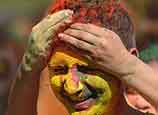
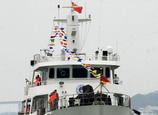




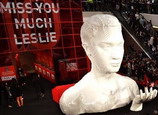
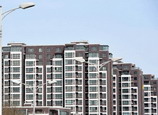
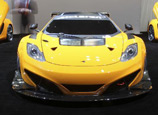






 Exhibition marks 10th anniversary of Leslie Cheung's death
Exhibition marks 10th anniversary of Leslie Cheung's death


![]()
